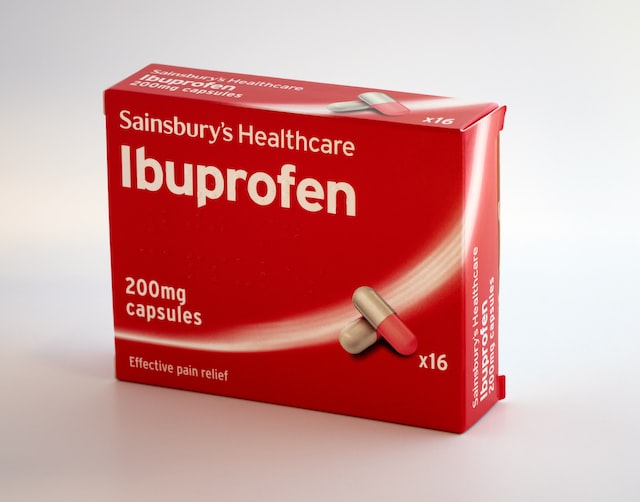Heart Risks from Ibuprofen, Naproxen and Other Common Pain Medicines

Pain is a common concern that patients often bring to their doctors. One of the most frequent prescriptions for pain are the non-steroidal anti-inflammatory drugs or NSAIDs. NSAIDs include both prescription and nonprescription medications:
Nonprescription
- Ibuprofen (Advil, Motrin)
- Naproxen (Aleve)
- And others…
Prescription
- Diclofenac (Voltaren)
- Ketorolac (Toradol)
- Meloxicam (Mobic)
- Celecoxib (Celebrex)
- And others…
These medications work through blocking cyclooxygenase enzymes (COX), enzymes that are involved in promoting pain and inflammation. One of the more common side effects from these medications is gastrointestinal bleeding. However, research over the last twenty years has been continuing to show that they can also cause heart attack, stroke and other vascular events. Due to their availability over the counter, many people may be unaware of the risks associated with regular NSAID use.
The Vioxx Debacle
In 1999, the U.S. food and drug association approved the NSAID rofecoxib, known under the brand name Vioxx, for treating pain conditions. By 2004, it was clear that the medication was causing elevated rates of heart attack and stroke and it was pulled from the market. In all, it was estimated that the medication may have caused between 88,000 and 139,000 heart attacks, one-third of which were likely fatal (Michaels 2006).
Based on the findings, the FDA reviewed the research on other NSAIDs and concluded that they all carry risks for causing serious heart events (FDA 2015).
The Latest Data on NSAID Heart Risks
Heart Attack
A meta-analysis from 2018 looked at the available data and concluded that the risk for heart attack in regular NSAID users was increased by (Masclee 2018):
- 25% by ibuprofen (Advil, Motrin)
- 22% by naproxen (Aleve)
- 28% by diclofenac (Voltaren)
- 80% by ketorolac (Toradol)
- 13% by meloxicam (Mobic)
- 15% by celecoxib (Celebrex)
Concerningly, even short-term use of NSAIDs, under seven days, has still been shown to increase clotting risks that could lead to heart attack or stroke, especially in patients with a history of heart disease (Olsen 2011).
Irregular Heartbeat

Atrial fibrillation is a type of irregular heartbeat where the upper chambers of the heart are contracting rapidly, but ineffectively. It raises risks for blood clots, heart attacks and strokes.
Recent meta-analysis of NSAIDs found increased risks for developing atrial fibrillation with NSAID use. Ibuprofen, naproxen and diclofenac increased risks by 30%, 44% and 37% respectively, although all NSAIDs in general appear to increase risks (Chokesuwattanaskul 2020).
High Blood Pressure
Yet another heart disease risk from NSAIDs is increased blood pressure. A study that treated patients with either ibuprofen, naproxen or celecoxib for arthritis found that they all increased the risk of developing high blood pressure. For patients prescribed NSAIDs, 23% developed high blood pressure while on ibuprofen, 19% on naproxen and 10% on celecoxib (Ruschitzka 2017). In general, regular NSAID use can raise blood pressure (systolic) by five points in patients without hypertension and up to 14 points in those with hypertension (Foy 2019).
Heart Failure
In some situations, the heart can become weak and can’t pump blood effectively. Known as heart failure, the condition can eventually lead to disability and death. A study looking at NSAIDs and heart failure risks found that use of any NSAID in the preceding two weeks increased the risk for hospital admission for heart failure by 19%. For high doses of diclofenac and some other NSAIDs, the risk was actually doubled (Arfe 2016).
Even with the known risks of heart failure and NSAIDs, they often still get prescribed to heart failure patients (Gislason 2009). Unfortunately, using NSAIDs in these patients increases their risks for death and further heart problems.
Stroke
Strokes are due to disruptions of blood flow to the brain. They can be caused by a clot or due to a blood vessel bursting. NSAIDs have also been associated with an increased risk of stroke. A review of observational studies found that taking any NSAID regularly was associated with a 33% increased risk of stroke. Meloxicam and diclofenac had particularly high risks at 48% and 39% respectively (Islam 2018).
Conclusion
NSAIDs like ibuprofen and naproxen are frequently used for the relief of pain. While they may be helpful in some situations, the increased risks for heart problems and stroke should not be discounted or ignored. In many cases, alternative pain treatments could be useful to avoid the risks from NSAIDs, like PEA, vitamin B12, curcumin and ginger. Hopefully, with more awareness as to the risks of NSAIDs, other viable options will get additional research to better understand their use for treating pain conditions without heart risks.



